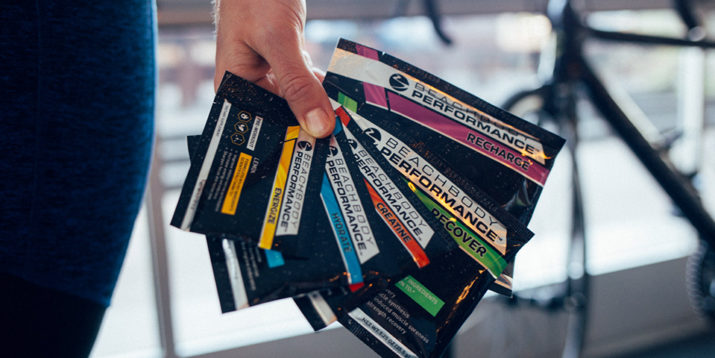What Is Quercetin and Why Is It in Beachbody Energize and Hydrate?

One of the exciting things about the intersection of nature, nutrition, and sports science is how much of it remains a mystery.
Almost every day, researchers are validating another effective, legal performance supporting ingredient — like quercetin, a highly bioactive compound that gives Beachbody Performance Energize (Lemon) and Hydrate their Day-Glo yellow sheen.
Quercetin is a phytonutrient, which means it’s a substance derived from plants that is beneficial to humans. Phytonutrients are also responsible for giving fruits and vegetables their distinctive colors.
Quercetin, which you’ll find in apples, citrus fruits, buckwheat, and onions, falls under flavonoids (a word derived from the Latin word flavus, meaning “yellow”) — a group of substances that have both antioxidant properties, helping scavenge free radicals in the body, which can help bolster cell signaling pathways and enhance intracellular communication.*
Pro tip: Energize Fruit Punch is now available! You can enjoy the same effective pre-workout supplement in both Lemon and Fruit Punch flavors in convenient, easy-to-pour stick packs.
Quercetin Benefits
There’s a lot of promising research involving quercetin; we have yet to completely confirm many of its benefits, although we know it helps aid in recovery and helps to combat exercise-induced muscle stress.
And for Beachbody Performance, we focused on yet another benefit that’s well-established: the effect it has on your energy systems, specifically, the way it helps support mitochondrial biogenesis.*
Often referred to as cellular “batteries,” mitochondria produce the energy that powers all of the cells in your body. More mitochondria mean more energy and greater physical output, making you faster, or improving endurance, depending on the circumstance.
There’s emerging evidence supporting these benefits. A 2009 study, for example, found that quercetin increased brain and muscle mitochondria in mice.
And while it’s difficult to rummage around the brains and muscles of humans to verify mitochondrial biogenesis, a study in the International Journal of Sport Nutrition and Exercise Metabolism reported that quercetin increased VO2 max in healthy, untrained subjects by an average of 3.9 percent, and bicycle ride time to fatigue by an average of 13.2 percent.
Similarly, a two-week study at Appalachian State University reported that untrained subjects who took quercetin increased the distance they were able to run during a 12-minute time trial by 2.9 percent.
That may not sound like much, but if you’re competitive, it can mean the difference between meeting your goal or not.
“This is the most compelling thing to me about quercetin,” says Marcus Elliot, M.D., founder, and director of P3, an elite training center and research lab in Santa Barbara, California. “We get a lot more work out of our athletes when they have quercetin on board than when they don’t.”
Anyone engaging in serious training should think seriously about integrating quercetin into their supplementation plan to help boost performance and support the body.*
“We have so few supplements that are truly effective in terms of increasing overall work capacity,” says Elliot. “When our athletes take quercetin, they’re still hungry and their eyes are still sparkly even after two hours of intense training. The difference in performance isn’t subtle; it’s clear and profound. This stuff works.”
*These statements have not been evaluated by the Food and Drug Administration. This product is not intended to diagnose, treat, cure, or prevent any disease.
